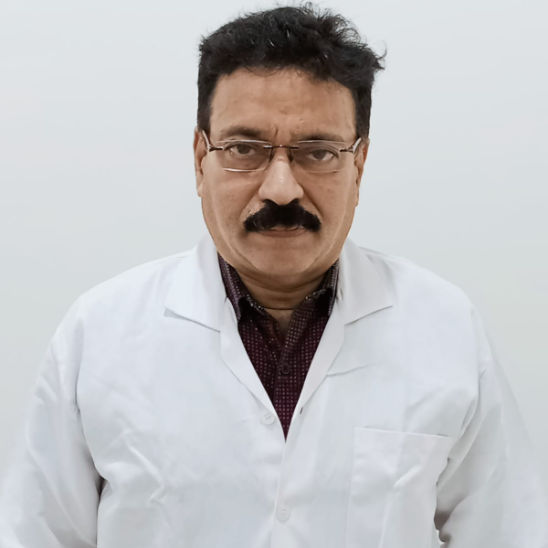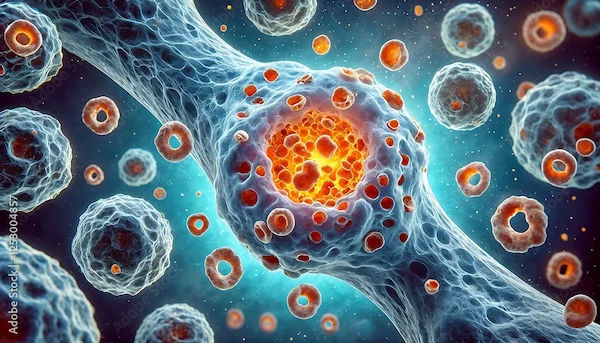Oesophageal Cancer Overview: Symptoms, Causes, Treatment
Learn about oesophageal cancer symptoms, causes, diagnosis, treatment options, and prevention tips to improve awareness and support early detection.


Facing a diagnosis of oesophageal cancer can be overwhelming, but understanding the condition can help you make informed decisions about your health. This article will guide you through the basics of oesophageal cancer, including its symptoms, causes, and treatment options, simply and compassionately.
What is Oesophageal Cancer?
Oesophageal cancer occurs when abnormal cells grow uncontrollably in the oesophagus—the muscular tube that carries food from your mouth to your stomach. Over time, these cancerous cells can spread to other parts of the body if not treated early.
There are two main types of oesophageal cancer:
1. Adenocarcinoma – Develops in the lower part of the oesophagus, often linked to acid reflux and obesity.
2. Squamous cell carcinoma – Occurs in the upper and middle parts of the oesophagus, usually associated with smoking and alcohol consumption.
Common Symptoms of Oesophageal Cancer
Early-stage oesophageal cancer may not always show symptoms, but as the disease progresses, you may experience:
- Difficulty swallowing (dysphagia) – Feeling like food is stuck in your throat.
- weight loss – Due to difficulty eating.
- Persistent heartburn or indigestion – Especially if it doesn’t improve with medication.
- Chest pain or discomfort – Often felt behind the breastbone.
- Chronic cough or hoarseness – Sometimes with blood in vomit or stool.
- Fatigue – Due to reduced food intake and anaemia.
If you notice any of these symptoms, especially if they persist for weeks, consult a doctor for further evaluation.
What Causes Oesophageal Cancer?
While the exact cause is unclear, certain risk factors increase the likelihood of developing oesophageal cancer:
1. Chronic Acid Reflux (GERD) – Long-term stomach acid backing up into the oesophagus can damage its lining, leading to Barrett’s oesophagus (a precancerous condition).
2. Tobacco and Alcohol Use – Smoking and heavy drinking significantly raise the risk.
3. Obesity – Excess weight increases pressure on the stomach, leading to acid reflux.
4. Diet Low in Fruits & Vegetables – A lack of essential nutrients may contribute.
5. Hot Liquids Consumption – Regularly drinking hot beverages may damage the oesophagus.
6. Age & Gender – Most cases occur in people over 55, and men are more likely to develop it than women.
How is Oesophageal Cancer Diagnosed?
If your doctor suspects oesophageal cancer, they may recommend:
- Endoscopy – A thin tube with a camera examines the oesophagus.
- Biopsy – A small tissue sample is taken for testing.
- Imaging Tests – CT scans, PET scans, or X-rays help determine the cancer’s spread.
Early detection improves treatment success, so don’t ignore persistent symptoms.
Treatment Options for Oesophageal Cancer
Treatment depends on the cancer’s stage, location, and overall health. Common approaches include:
1. Surgery – Removing part or all of the oesophagus (oesophagectomy).
2. Radiation Therapy – High-energy beams target and kill cancer cells.
3. Chemotherapy – Drugs destroy cancer cells or stop their growth.
4. Targeted Therapy & Immunotherapy – Advanced treatments that attack specific cancer cells or boost the immune system.
5. Palliative Care – Helps manage symptoms and improve quality of life in advanced cases.
Your doctor will create a personalised treatment plan based on your condition.
Lifestyle & Dietary Tips for Prevention & Management
While not all cases are preventable, certain lifestyle changes can lower your risk:
- Quit Smoking & Limit Alcohol – Reduces irritation to the oesophagus.
- Maintain a Healthy Weight – Helps prevent acid reflux.
- Eat a Balanced Diet – Include fruits, vegetables, and whole grains.
- Avoid Very Hot Foods & Drinks – Let beverages cool slightly before drinking.
- Manage Acid Reflux – Elevate your head while sleeping and avoid late-night meals.
When to Seek Medical Help?
If you experience persistent difficulty swallowing, unexplained weight loss, or severe heartburn, don’t delay seeing a doctor. Early diagnosis can make a significant difference in treatment outcomes.
Need Expert Advice?
If you or a loved one is concerned about oesophageal cancer, Apollo 24|7 offers expert consultations and diagnostic tests. You can easily book an appointment online and get the right guidance for your health.
Final Thoughts
Oesophageal cancer is a serious condition, but awareness and early action can improve outcomes. By understanding the symptoms, risk factors, and treatment options, you can take proactive steps toward better health.
Consult Top Specialist
Consult Top Specialist

Dr Suseela
General Physician
5 Years • MBBS
Bengaluru
Apollo Medical Center, Marathahalli, Bengaluru

Dr. Mainak Baksi
General Practitioner
13 Years • MBBS , MD (MPH)
Howrah
Mainak Baksi Clinic, Howrah
(50+ Patients)

Dr. Rajib Ghose
General Physician/ Internal Medicine Specialist
25 Years • MBBS
East Midnapore
VIVEKANANDA SEBA SADAN, East Midnapore

E Pradheep
General Physician/ Internal Medicine Specialist
38 Years • MBBS
Bengaluru
Apollo Clinic, Sarjapur Road, Bengaluru

Dr. Shiv Krishna Mitra
General Practitioner
15 Years • MBBS GEN. MED. PGDRM, MCH
Kolkata
Samaritan Clinic, Kolkata




